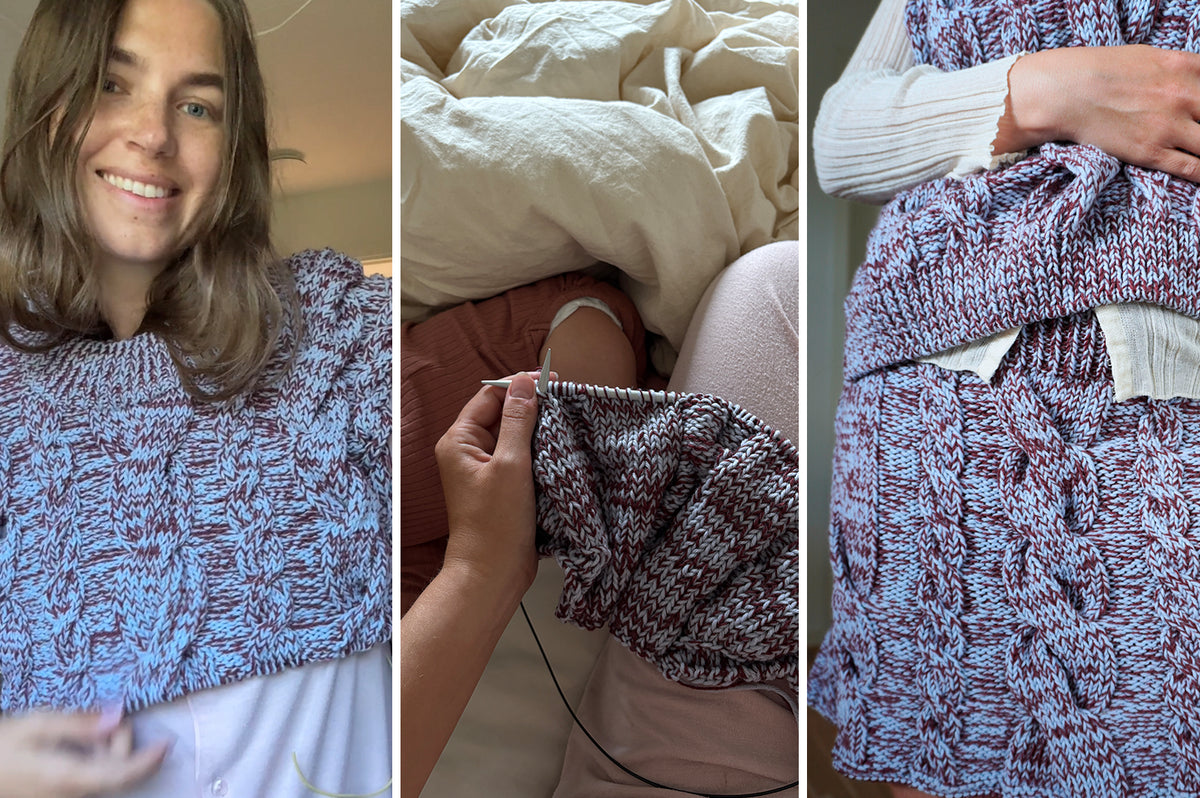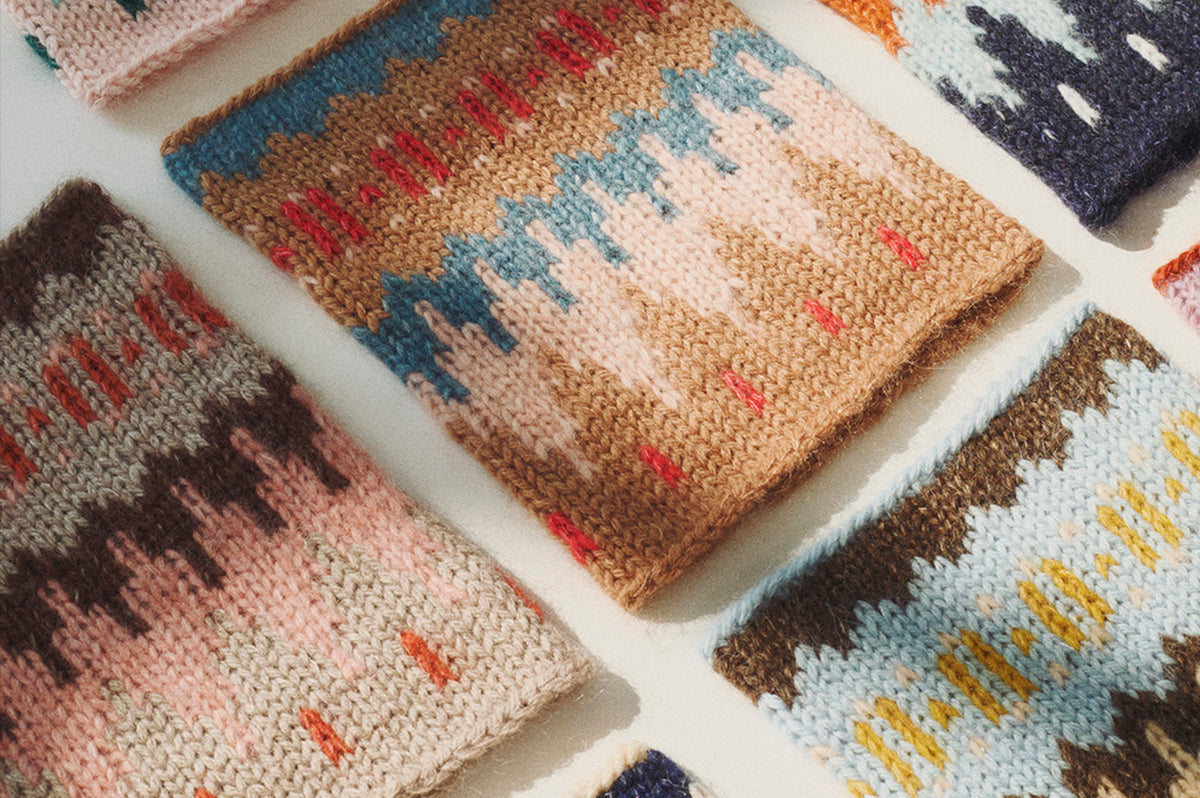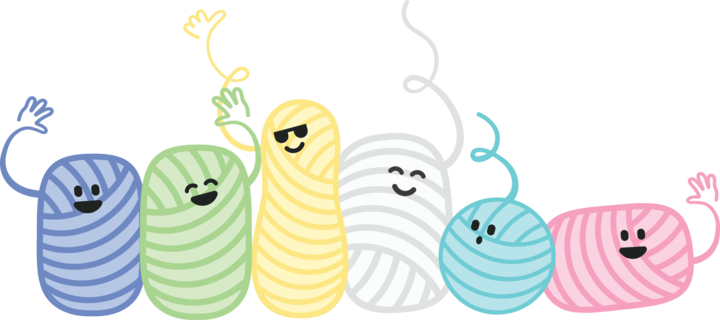Ever noticed a little number on your yarn label called the Lot Number (or Dye Lot)? It might seem like a small detail, but it can make a huge difference in your finished project.
Here’s why: Even if two skeins have the exact same color name, they might look slightly different if they come from different dye batches. That’s where the lot number comes in – it tells you exactly which dye batch your yarn is from.
Now picture this: You’re almost finished knitting a cozy cardigan or crocheting a beautiful blanket when you run out of yarn. No biggie, right? You order more in the same color. But when the new skeins arrive... something’s off. The shade doesn’t quite match, and suddenly your dreamy project has a patch of unintentional contrast. 🫠
Let’s break down the lot number, because this sneaky number can seriously change the way your project turns out.
What Is a Lot Number in Yarn?
A Lot Number in yarn identifies the dye batch it was colored in. Matching lot numbers helps ensure consistent color throughout your project.
Dye Lot Differences in Yarn: Why “Dusty Rose” Might Look a Little Rosier This Time
Dyeing yarn is a little like baking – follow the recipe all you want, but sometimes your cookies come out just a little different than last time. 🧁🎨
Even using the exact same formula, the dyeing process can produce subtle (and sometimes not-so-subtle) differences in color between batches. Most of the time, it’s hardly noticeable. But occasionally, it can be a real eyesore, especially if the color shift shows up smack in the middle of your beautiful work.
Each batch of yarn can have slight differences in color, depending on factors like:
- Water temperature 💧
- Humidity 🌦️
- Time in the dye bath ⏱️
- Even the specific fibers in that batch 🐑
The result? Two skeins of a color called “Dusty Rose” might look more like “Dusty” and “Rosy” if they’re from different dye lots.
Where to Look for the Lot Number on Your Yarn
Take a peek at the yarn label. You’ll usually see the color name or number listed, and right next to it, you’ll find the lot number. This is your clue to the dye batch.
If you want your finished project to have consistent coloring throughout, make sure all your skeins come from the same LOT.
Yarn Dye Lot Tips: How to Get Even Coloring
Want to keep your colors consistent? Here are our top tips:
1. Buy Enough Yarn from the Same Lot (and Then Some)
Planning ahead is key! Always order a bit more than you think you’ll need. That one “just-in-case” skein could save your project later.
Unfortunately, we can’t provide lot numbers in advance. And once a dye number is gone, it’s gone for good. We can’t bring it back, or look up a specific batch for you. So plan wisely before you click “Add to cart”. 🛒
2. Double-Check Your Labels
Before you start, compare the lot numbers on your skeins to make sure they match. It’s easier to spot differences now than halfway through your sweater.
Keep in mind: We can’t guarantee that all your skeins in the same color come from the same batch, even when you order all the skeins at the same time. That’s why it’s super important to check the lot numbers as soon as your yarn arrives. Catching any mismatches early gives you the best chance to make adjustments before you start stitching. 🧶
3. Save Your Labels or Keep a Project Journal
Write down your yarn details – brand, color, lot number, and gauge. You never know when you’ll want to recreate or fix a project or need to reference what you used.
What to Do If Your Yarn Dye Lots Don’t Match
Oops... Already have mismatched dye lots? Don't panic. You’ve got options – and some of them are actually pretty creative!
Option 1: Adjust Your Project to Only Use One Dye Lot
Working on a shirt? Try shortening the sleeves, or going for a cropped fit. Crocheting a blanket? Turn it into a cozy lap throw. Problem (stylishly) solved.
Option 2: Blend Dye Lots Like a Pro
If you have to mix lots, you can fade between them by alternating skeins every few rows. That way, the color shift will look more like a design choice than a dye mishap.
Bonus idea 🎨 Use the contrast intentionally! Make the second lot your border, your collar, or your cuffs. A two-tone look? Yes, please, so stylish!
Remember to Swatch First
Always swatch if you’re blending dye lots. Differences are sneaky on the skein but way more obvious once they’re worked up.
The Bottom Line on Dye Lots
To keep your colors crisp and cohesive:
- Do you have a project in mind? Buy all your yarn in one go
- Check those lot numbers
- Order an extra skein or two (trust us, leftovers never go to waste!)
- Keep track of your yarn details for future you
And remember: Dye lot numbers are one-time batches. Once they sell out, they don’t come back. So planning ahead saves you headaches (and heartache 💔) later.
Happy Crafting!
With love from your yarn-obsessed friends at Hobbii 💕🧶
FAQ: All About Yarn Lot Numbers
What is a Lot Number in yarn?
A Lot Number (also called a dye lot) is a code printed on the yarn label that tells you which batch the yarn was dyed in. Yarn from the same lot will have consistent coloring. Yarn from different lots may vary slightly in shade, even if the color name is the same.
Why do yarn colors differ between dye lots?
Even with the same dye formula, factors like temperature, humidity, and fiber type can affect how the color turns out. That’s why each dye batch can produce slightly different results, making lot numbers important for color consistency.
Can I mix yarn from different dye lots?
Yes, but proceed with caution! If the color difference is subtle, you can try alternating skeins every few rows to blend the shades. Or use the contrast creatively, like for cuffs, borders, or stripes.
Where can I find the Lot Number on my yarn?
You’ll find the lot number on the yarn label, usually near the color name or number. If you're ordering online, be sure to check the lot numbers as soon as your yarn arrives.
Can I request a specific dye lot when ordering from Hobbii?
Unfortunately, no, we can’t provide or search for specific lot numbers. That’s why we always recommend ordering enough yarn in one go and double-checking your labels when your order arrives.
















